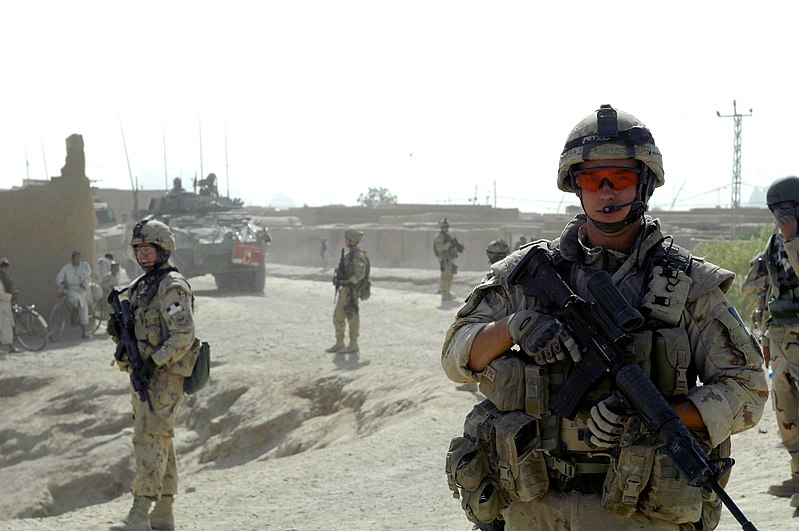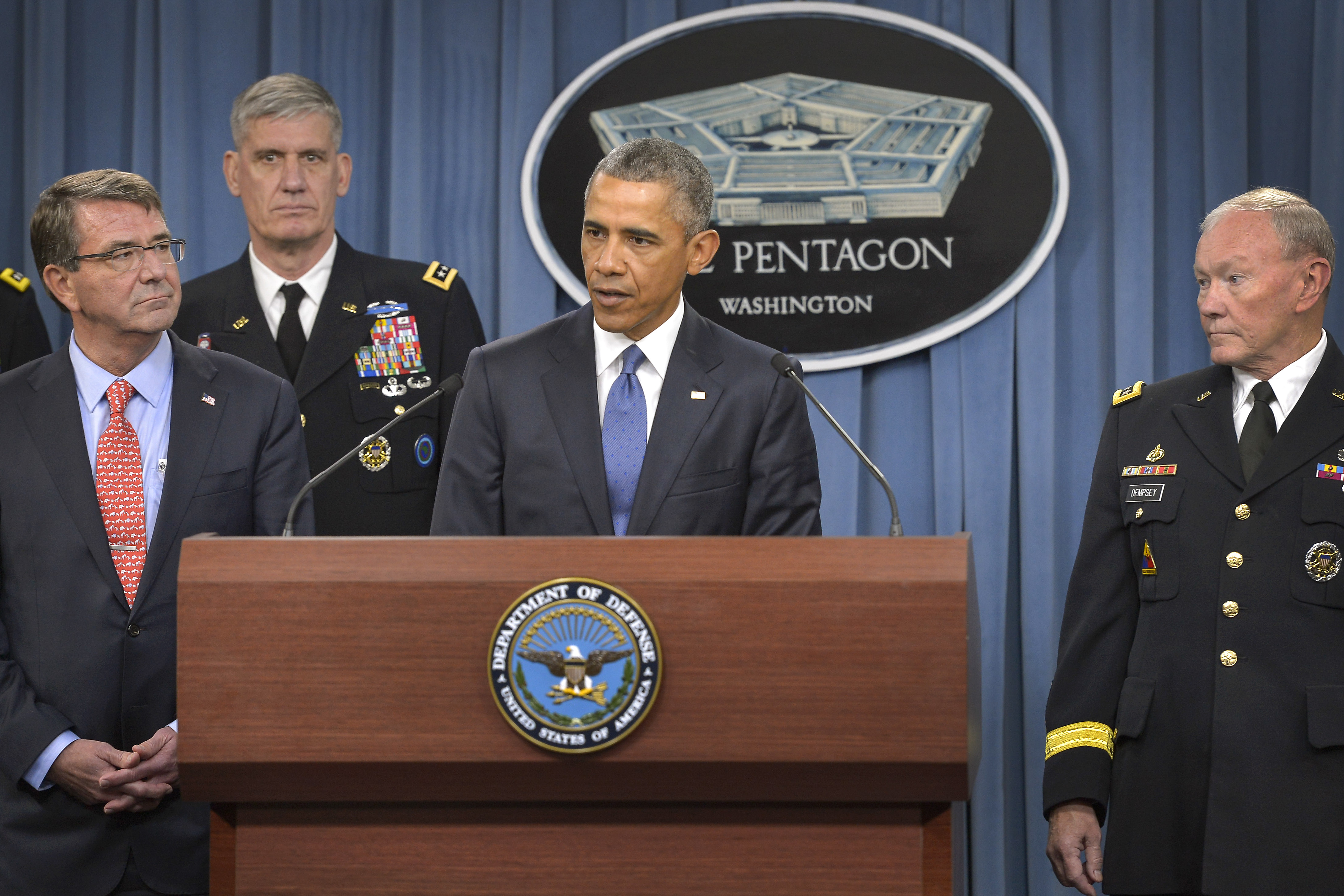Smith, Graeme. The Dogs Are Eating Them Now: Our War in Afghanistan. Toronto: Knopf Canada, 2013.
“We lost the war in Southern Afghanistan and it broke my heart.” Thus begins The Dogs Are Eating Them Now: Our War in Afghanistan, Graeme Smith’s passionate and unsparing memoir about Canada’s involvement in the War in Afghanistan. Smith worked as a correspondent for The Globe and Mail, covering the War in Afghanistan from 2005 to 2011. During his time there, he watched the NATO mission deteriorate from optimistic nation-building to frustrating damage control and retreat, as scandals, corruption, internecine conflict, and ignorance of local culture plagued the alliance’s well-intentioned efforts. In the wake of Canada’s withdrawal from Afghanistan, Smith wrote The Dogs Are Eating Them Now in an attempt to articulate his anguish at what he perceived as the failure of Western forces to bring lasting democracy and stability to the region. Though lacking the full historical context to explain this failure, The Dogs Are Eating Them Now is nonetheless a poignant and insightful account of Canada’s lost war.
Smith narrates his chronicle from what one reviewer calls “a grunt’s-eye view,” talking to foot soldiers, locals, and prisoners to paint a vivid picture of life in southern Afghanistan. He eschews emotionally-detached analysis for a more visceral narrative that puts readers in his charred, flesh-covered boots, highlighting the human implications of Canada’s failure for both Canada and Afghanistan. Smith avers that as NATO claims victory in Afghanistan, the dangerous web of violence and corruption it leaves behind will likely be ignored in its official reports. Thus, The Dogs Are Eating Them Now serves as a counter-narrative to the more sanguine official line from Western officials about the legacy of the NATO mission in Afghanistan, telling the story as everyday Afghans and foreign boots on the ground experienced it, and continue to experience it. By incorporating local knowledge, Smith uses what Michael Barnett and Raymond Duvall call “productive power” – the power of knowledge and information – to challenge official accounts and influence public perceptions.
Readers unversed in the history of the conflict in Afghanistan may find themselves unmoored from context in Smith’s account, and policy experts may be vexed at his unwillingness to provide any concrete policy recommendations, as he seems more inclined to opine about where he feels NATO’s International Security and Assistance Force (ISAF) made mistakes than to offer solutions. But his style communicates, via a wealth of anecdotes, the absurdity and agony of fighting a failed war, infusing a sense of immediacy about the rising clash between the post-Cold War ideal of liberal internationalism and the complicated reality of global governance. Written more like a diary than a policy paper, The Dogs Are Eating Them Now is a fittingly unorthodox and subversive work about a somewhat unorthodox and subversive war.
Now in order to understand the mistakes Smith accuses Western policymakers of making in Afghanistan, one would expect to first examine the history of Western policy that shaped the Allied invasion of that country in the first place. However, by beginning the story in 2005, Smith robs the reader of this critically important context. After the Cold War, the United States was the sole superpower, and regarded the Soviet Union’s fall as the triumph of democratic liberal values. The years that followed saw a massive expansion of liberal internationalism, with the creation of international institutions like the International Criminal Court and the promotion of “Western” values such as gender equity and electoral democracy. The democratization of Eastern Europe in the 1990s, led by Western-backed initiatives such as NATO’s Partnership for Peace, further emboldened Western leaders’ vision of a world undergirded by Democratic Peace Theory. All peoples, the thinking went, could and would eventually democratize, improving the human rights and welfare of all and promoting peaceful coexistence in the seemingly inevitable “global village” of the new millennium.
The 9/11 Attacks challenged the notion of the historical inevitability of the universal expansion of liberal democracy. It also brought the horrors of competing, anti-Western ideologies to American shores for the first time in decades, forcing outraged Americans – and their Canadian brothers – to respond. NATO forces found a horrible, repressive regime in the Taliban and sought to overthrow it. Both vengeful and optimistic, many Western policymakers felt confident that NATO had the wherewithal to democratize “out of area” regions like Afghanistan. It wasn’t simply about “bring[ing] the whole basket of civilization to the south,” or “a climactic battle between the forces of barbarism and civilization,” although it was both of those things. Ultimately, it was the West riding the postwar wave of liberal internationalism – those who were told of the “end of history” versus stubborn history.
In this context, one understands why NATO, full of hope and rage, attempted nation-building in the country dubbed “the graveyard of empires”. While democratization’s impressive track record in Europe since 1945 made the West understandably confident, Afghanistan represents a broader warning, echoed recently in Iraq and Libya, that post-World War II democratic successes cannot necessarily be repeated. Afghanistan is not simply an isolated case of failed intervention, as Smith argues.
If Afghanistan is a case study in “the dangers of convenient hope,” it can perhaps also be characterized as one in the dangers of blissful ignorance. Political scientist James C. Scott states that in order to be successful, governance efforts must wed technical expertise with mētis, or practical knowledge. Instead, many Westerners took a patronizing attitude toward the Afghans, referring to the Taliban, for example, as “village idiots” and “talking about Afghans as if they were clay to be molded”. The Western belief that all peoples, including Afghans, could be democratized, was a form of colorblind universalism. But it lacked nuance. It failed to take into consideration its own imposition of a way of life on another people without fully considering their unique cultural context and its potential to stoke resentment. This created disconnect between the occupiers and the population that money, technical expertise, and proselytizing could not bridge.
Smith places a fair amount of the blame at the feet of the Americans, painting them as trigger-happy cowboys with no respect for the rules of engagement. No doubt the Americans’ blustering image, coupled with their adventurism in Iraq, did not help the cause. But the lack of attention to cultural realities is rooted in a deeper trend of Western exceptionalism that treats the West as the sole source of good ideas and the rest of the world as passively awaiting enlightenment.
Thus Canadians, as much as everyone else, were resistant to the ugly truth: that perhaps Afghanistan was not amenable to democratization. Afghans see themselves less as one nation-state and more as a “patchwork of fiefdoms” ruled by local mujahideen, or warlords, and deeply divided along tribal lines. Thus, efforts by the Afghan government to intervene in local affairs in the rural south was perceived by the locals, not as the extension of the rule of law, but rather an incursion by a rival tribe.
The West also fundamentally, and perhaps willfully, misunderstood the Taliban. Interviews with Taliban fighters reveal that they are not bent on world domination (though Smith fails to note that al-Qaeda, who the Taliban harbored, are); rather, many were aggrieved locals resisting the invasion of foreign values. Moreover, they had more support among locals than the West would like to believe. A 2018 article, tweeted favorably by Smith himself, describes how the Taliban won over the hearts and minds of war-weary Afghans who preferred law and order to the corrupt “democracy” of the Western-backed government. Yet Western determination to rid the world of what President Bush infamously referred to as “evildoers” led to Allied support for a corrupt, inept regime that was democratic in name only, causing a disconnect between ideals and reality that strained relations between not only the government and its people, but the Afghans and the foreigners, ultimately dooming the mission.
Nowhere was the gap between vision and reality more painfully evident than with the issue of detainees. In the longest and most emotional chapter of the book, Smith discusses NATO’s and Canada’s decision to turn over presumed Taliban prisoners to Afghan prisons, where they were subject to torture. Smith expresses outrage at NATO’s willingness to sacrifice human rights in the name of intelligence; he feels “there was a terrible calculation, a decision to avoid fighting by the rules.” However, Smith’s presentation of a dichotomy between principles and expediency fails to acknowledge a central fact about torture: it doesn’t work. Torture routinely produces false information from detainees, who simply tell the torturers what they think they want to hear; moreover, revelations of torture tend to hinder public support for the mission. The Afghan justice system in particular was not led by draconian interrogators who extracted invaluable intelligence through brutal but effective means, but by inept thugs who, according to Smith’s 2007 article on detainees, ran a system “so flawed that it’s hard to say which [prisoners], if any, are Taliban.” The consequences of this decision was not only the torture of countless Afghans but the loss of the Canadian public’s trust.
The Dogs Are Eating Them Now highlights how Afghanistan exposed the glaring disconnect between liberal vision and modern reality. Any objective analysis of Afghanistan that accounted for culture, history, and the practicalities of democratization would have suggested it untenable. But, driven by moral outrage in the wake of 9/11 and made overconfident by the previous successes of democratization, Canadians attempted to fashion Afghanistan into a liberal democracy with military, monetary, and moral might. The result fell short of not only Canada’s expectation for the mission but of Canadians’ expectations for its military, an outcome with lasting implications for the West.
In the future, it will be critical for governments to be honest and upfront with their constituents about the practical limitations of their aims. Without the essential productive power of trust, the legitimacy of other forms of power are called into question. As social media empowers and connects anti-establishment movements from ISIS to Occupy and the Arab Spring, accounts like Smith’s will find a growing audience. Populists, in particular, will seek to exploit the “legitimacy deficit” caused by unfulfilled promises made in the lofty centers of pollical power. Thus those who govern must take care not to reflexively respond to understandable calls for justice, as in the aftermath of 9/11, with objectives that are unobtainable. In addition, when dealing with complex national security issues like terrorism, the West must restrain an overreliance on militaristic solutions with their comforting notions of unquestionable moral right and absolute victory. It must opt for more culturally nuanced means that may be less glorious but more effective. Liberal democracy is a wonderful ideal, but ideals alone cannot stem the tides of history and culture. Leaders need to acknowledge the limits of ideals that stand alone, lest they go to the dogs.
Disclaimer: Any views or opinions expressed in articles are solely those of the authors and do not necessarily represent the views of the NATO Association of Canada.



